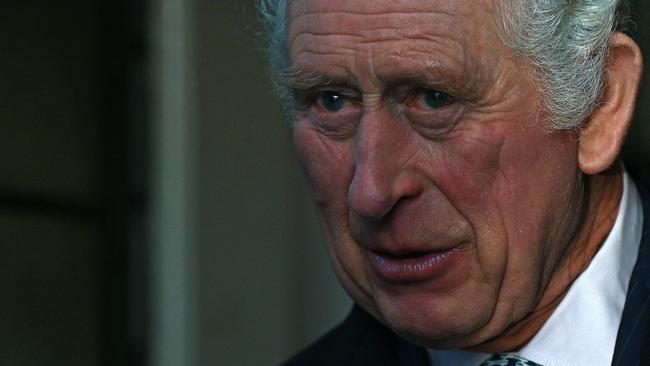
Charles would visit the ailing and stoic queen almost daily, and he encouraged her to make a last-minute decision to farewell the nation on the Buckingham Palace balcony for the finale of her momentous Platinum Jubilee celebrations.
Queen Elizabeth’s death at 96 on September 8 was not a surprise, but it was a seismic shock. Amid this tumult of grief and constitutional upheaval, Charles had to cement his kingship on the nation, touring England, Scotland, Wales and Northern Ireland to be seen, and heard, and proclaimed.
While Charles’s wife Camilla, Queen Consort, was without complaint hobbling by his side with a broken toe and calmly getting on with things when Charles became frustrated with a fountain pen, in the background was his wayward son Prince Harry and Harry’s wife Meghan, chipping away with demands that their children, three-year-old Archie and one-year-old Lilibet, be made a prince and princess.
Charles used all his fatherly skills to get Harry and Prince William to agree to conduct a walkabout together outside Windsor Castle, pressing upon them the need for a united front at a time of national grief. He lovingly included Harry and Meghan in his first address to the nation as King.
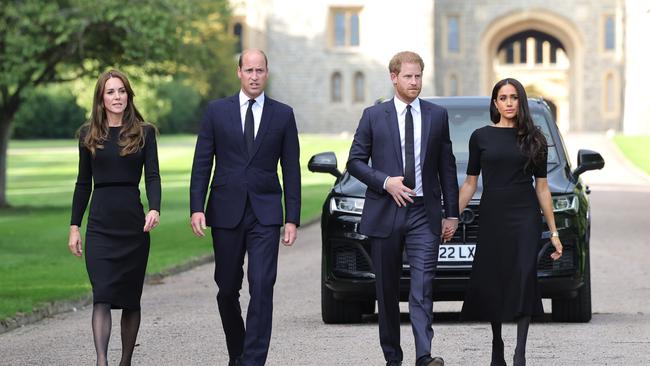
He is, reportedly, about to invite them to his coronation next May, and in his first Christmas address to the nation will mention the couple.
And for all of that tender diplomacy, what has happened?
Harry, 38, has thrown incendiary claims at his father, accusing him of marrying to fit the mould, of lying during the tension-filled Sandringham summit that discussed his exit from the royal family, and of not providing support after his mother Diana, princess of Wales, died in a car crash.
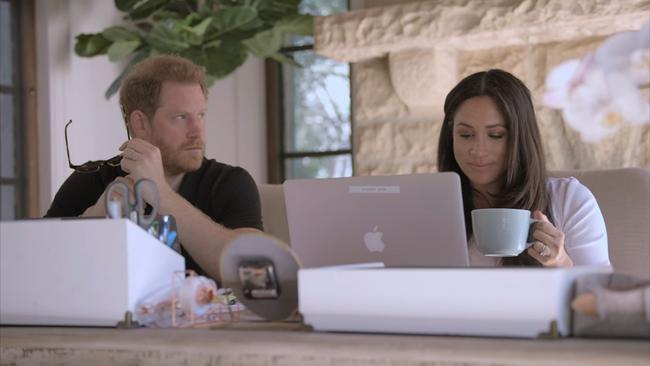
Harry included claims from his new best mate, movie mogul Tyler Perry, in the recent Netflix documentary about his and Meghan’s “love story’’, that the palace, and by implication Charles, was a “batterer”, acting like a domestic violence abuser by withholding funds and not paying for security.
Harry promises more “raw, unflinching honesty” in his memoirs, to be released in January.
Meghan, 41, hasn’t stepped back from her bombshell claims of racism to Oprah Winfrey, saying Archie, “the first member of colour in this family, isn’t being titled in the same way as other grandchildren would be”.
She further claimed there were “concerns and conversations about how dark his skin might be when he was born”. Queen Elizabeth noted these statements by saying “recollections may vary”.
The Netflix documentary blamed the Sussexes’ flight from royal duties to a $20m Californian mansion on racist attacks by the British media and an awful monarchy. They have demanded an apology from the palace. Charles, graciously, has not responded in public.
Others not so. British Prime Minister Rishi Sunak has flagged new laws after Netflix was accused of making misrepresentations in the Harry & Meghan series.
Sunak said last week: “I absolutely don’t believe that Britain is a racist country. And I’d hope that as our nation’s first British Asian prime minister, when I say that, it carries some weight. You know, I’m really proud of our country, its culture, its resilience, its beauty. Actually, it’s an enormous privilege to champion Britain and, indeed, its institutions like the monarchy when I’m out and about on the world stage.”
In parliament there are moves by Tory politicians, led by Bob Seely, to have the couple stripped of their duke and duchess titles, by amending a law used in World War I to distance the British crown from several dukes with German and Austrian connections.
“There is a political issue at stake,” Seely said, pointing to Harry not only trashing his family and monetising his misery for public consumption but “attacking some important institutions in this country”.
As well as Harry, another royal outcast, Charles’s brother Prince Andrew, will no longer be automatically deputising for King Charles when he is overseas or indisposed. The House of Lords has activated plans to expand the current list of four counsellors of state and Camilla to add two more steady hands: Charles’s sister, Princess Anne, and his other brother, Prince Edward.
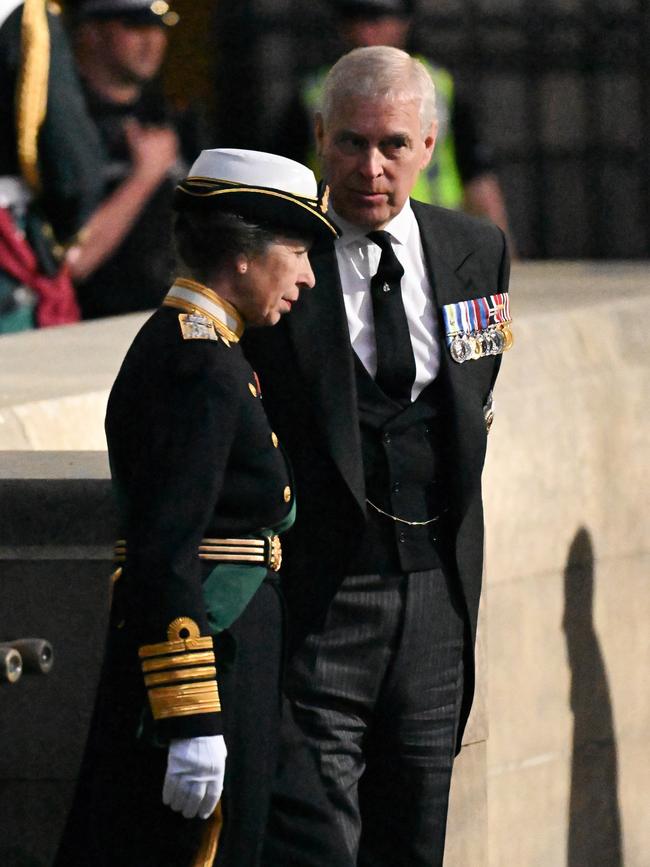
Given that the counsellors of state have legal authority to sign documents, attend Privy Council meetings and receive dignitaries, the lords have debated how Andrew, the Duke of York, and Harry, the Duke of Sussex, could ever be considered potential replacements when one had “left public life” and the other had “left the country”.
These changes to the Regency Act are to be in place before Charles and Camilla and Prince William and Kate head off on major international tours being planned, including to Australia.
It has taken some time for the nation to acknowledge that Queen Elizabeth is no longer and King Charles is the monarch. The currency still looks the same; it is only this week that the first five-pound note with Charles’s face has been issued.
The Beefeaters at the Tower of London are still dressed in their starched ER uniforms; postboxes still have Her Majesty’s crest. Tourists flocking to Buckingham Palace’s gift shop still coo over the Platinum Jubilee book Winnie-the-Pooh meets the Queen, or The Queen: 70 Glorious Years Official Souvenir Album; and her distinctive profile still adorns must-have tat.
The gravitas and structure surrounding the monarchy in Britain, and in Australia, appear to be reasonably solid: in just one recent week Charles hosted a state dinner with a heavyweight speech about colonialism; there was a special luncheon for the Order of Merit recipients, including Australia’s former prime minister John Howard; and the dispensing of concerns and thoughts from the King and Queen about the floods in Victoria and NSW.
Howard, who has been visiting London in recent weeks, observed that the anti-royal views in Australia were less than during the republic vote on his watch back in 1999, even though it had been mooted that a change of monarch would be an opportune time to revisit a republic referendum.
Howard said: “The last referendum was 55-45 (against becoming a republic); do I think that would be replicated in the near future? No, it would be defeated even more heavily.”
Howard, one of the 24 members of the Order of Merit – others include distinguished scientists, writers, musicians and artists such as Sir David Attenborough and Sir Tim Berners-Lee – received his honour from Queen Elizabeth 10 years ago because of his political longevity, and quite possibly because he kept Australia within the realms of the British system.
He said Australians were yet to be convinced about a viable alternative form of government to Australia’s constitutional monarchy: “Many Australians look to the US and are a little bewildered … People think ‘gee, if that’s the alternative we should stick with what we have got’.”
Republic, the British equivalent of the Australian Republican Movement, uses the slogan #notmyking but is battling an overwhelming 70 to 80 per cent support for the monarchy.
It says on its website: “Replacing the monarchy with a democratic alternative – an elected head of state – will make a real difference to the country. It isn’t the answer to every issue we face, but it will give us a better democracy and will solve some real problems.”
That revolution appears unlikely in Britain in our lifetimes – despite Harry and Meghan’s best efforts – but in other parts of the world there is a swing towards independence to address historic colonial imperialism.
During Queen Elizabeth’s 70-year reign, her authority shrank from the vast expanse of Queen Victoria’s British Empire to just 14 countries, and Charles faces losing more. He recognises the monarchy has to modernise, slim down and be accountable to the public.
Last year, Barbados became a republic, in a ceremony attended by Prince Charles, who referred to the “appalling atrocity” of slavery. Other Caribbean nations such as Antigua and Barbuda, Belize, the Bahamas, Grenada, Jamaica and St Kitts and Nevis are looking at removing Charles as their sovereign amid loud calls for apologies and reparations.
Antigua and Barbuda plans a referendum on becoming a republic soon.
“This is a matter that has to be taken to a referendum … within the next, probably, three years,” Prime Minister Gaston Browne said.
In his first speech as King to the Commonwealth, Charles reflected on this inevitability: “relationships change, friendship endures”.
A longstanding Jamaican politician, Mike Henry, has demanded much more. He wants reparations of $US10bn ($15bn) to recognise the slave trade of about 600,000 Africans, brought to Jamaica to create fortunes for British aristocrats who owned sugar cane and banana plantations.
Closer to home, a Buckingham Palace reception calling for the end to violence against women and girls, attended by Australia’s Princess Mary of Denmark and Ukraine’s first lady Olena Zelenska, showed how raw the palace, under Charles’ reign, is to claims of racial prejudice.
Charity worker Ngozi Fulani accused Queen Elizabeth’s lady-in-waiting of 60 years, Lady Susan Hussey, of racism for asking repeatedly where she was “really” from.
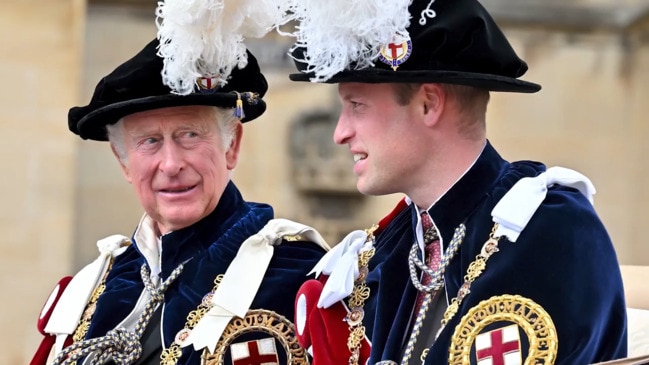
Fulani, who is British of Barbadian descent, runs a domestic violence charity for women of African and Caribbean backgrounds. She says she was violated and hurt and felt trapped by the questioning, which she was able to recount in great detail on social media. Within hours Lady Susan, who is William’s godmother, stood down and the palace issued a withering statement saying Lady Susan’s comments were “unacceptable and deeply regrettable”.
In the past the palace might have ignored such criticisms, but this time it went even further than the statement, organising a meeting between the two women that they said was filled with warmth and understanding. Lady Susan offered sincere apologies for her comments and the distress they caused to Fulani, who appreciated no malice was intended.
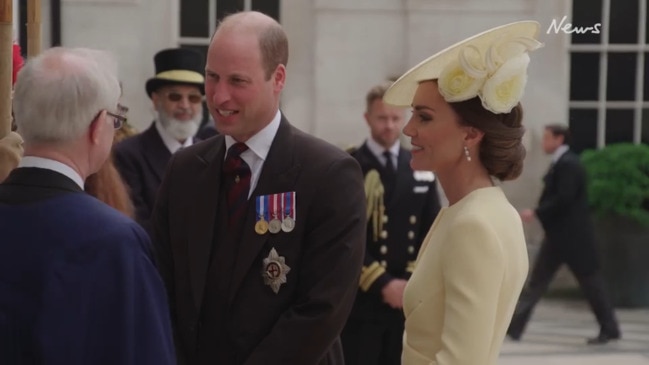
Just where this rapprochement leaves the charity commission and its preliminary investigation into Fulani’s Sistah Space charity after questions were raised by members of the public scrutinising the charity’s taxpayer grants is uncertain.
Charles, 74, has ascended to the throne at a time of particularly harsh economic pain felt across Britain. His personal land holdings and those of the monarch tally to more than £42bn ($76bn), and his personal wealth is estimated at about £350m. He has inherited an estimated half a billion from Queen Elizabeth, and he doesn’t pay inheritance tax.
The family fortune of Sunak, more than double that of Charles, has diverted criticism of Charles’s inherited wealth, and the continuing wave of angry strikes, including by nurses and ambulance drivers, is directed at the government, not the monarchy.
But the truce between Charles and his subjects is fragile. So far we haven’t seen the meddling King that many anticipated, and Charles himself announced that his environmental activism would now have to be put aside although he immediately insisted that foie gras be banned from being served at all royal residences.
Charles’s reign, which may be as short as one or two decades, will be marked by how he grapples with the monarchy’s place in modern Britain, and Britain’s place in the rest of the world. As Charles has already seen inside his own family, despite his own best efforts, that path could be rocky.


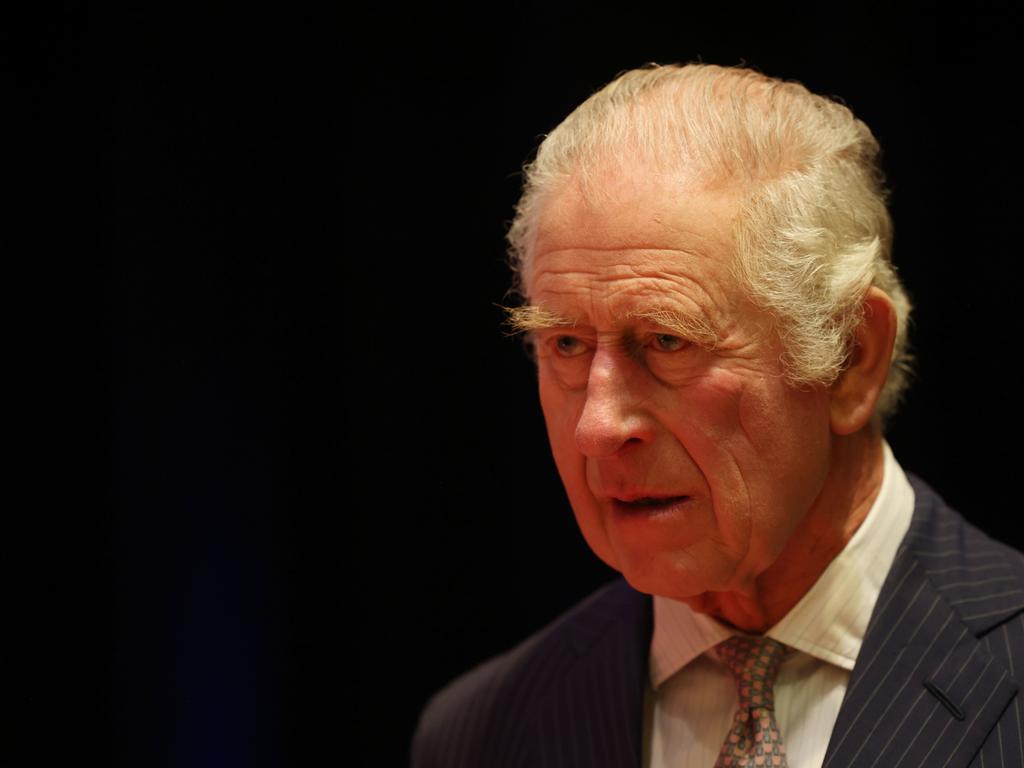
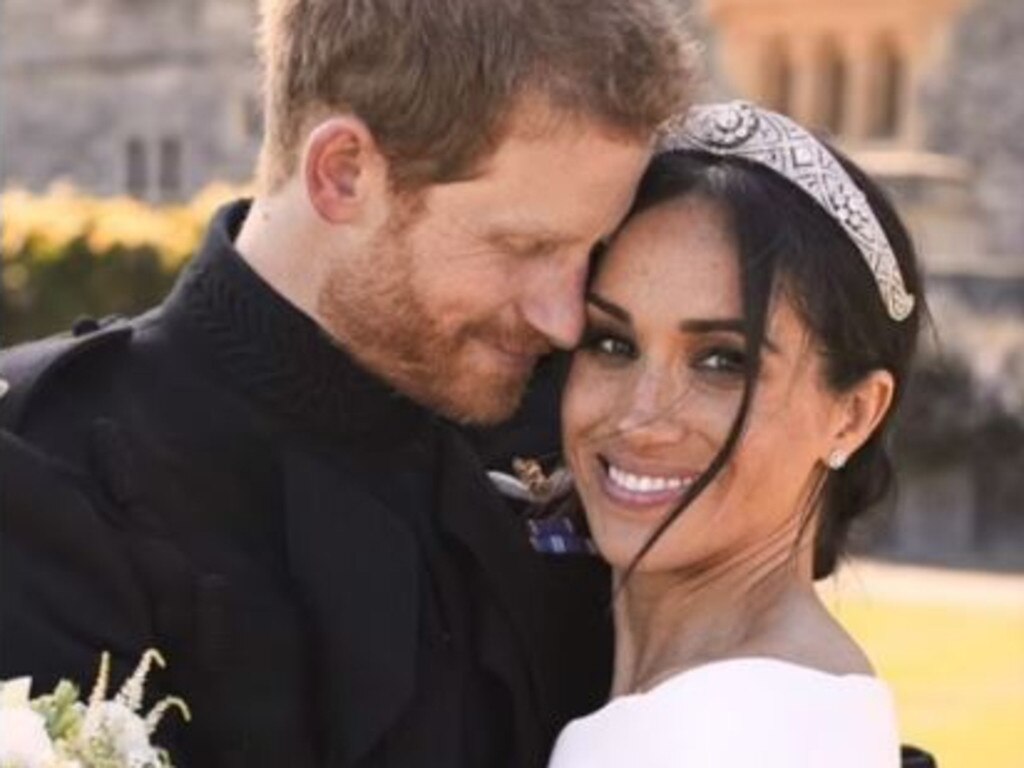

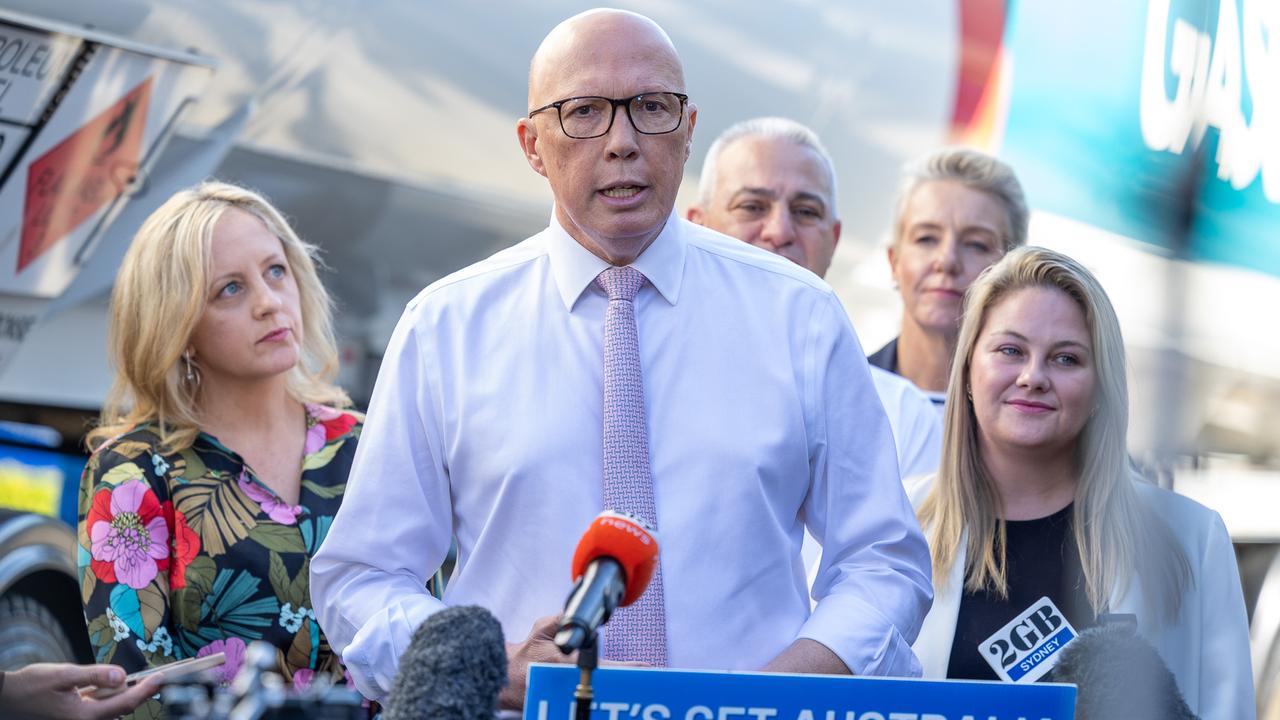
Just think of the torrid year King Charles has endured. His mother was seriously ill, undergoing treatments, it is believed, for a type of bone cancer that severely limited her appearances, all the while mourning the loss of her husband and “rock”, Prince Philip.